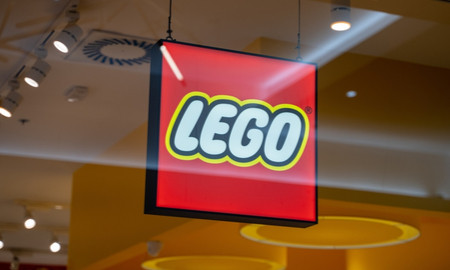Sign up for our free daily newsletter
YOUR PRIVACY - PLEASE READ CAREFULLY DATA PROTECTION STATEMENT
Below we explain how we will communicate with you. We set out how we use your data in our Privacy Policy.
Global City Media, and its associated brands will use the lawful basis of legitimate interests to use
the
contact details you have supplied to contact you regarding our publications, events, training,
reader
research, and other relevant information. We will always give you the option to opt out of our
marketing.
By clicking submit, you confirm that you understand and accept the Terms & Conditions and Privacy Policy
Aldi has lost an appeal against a decision that found it had infringed four registered designs of a gin drink sold by retailer Marks & Spencer (M&S).
In a judgment one senior IP lawyer said provided “encouragement to registered design owners”, Lord Justice Richard Arnold at the Court of Appeal today (27 Feb) dismissed all seven grounds presented by supermarket Aldi, which was appealing Judge Richard Hacon’s decision from February last year.
The registered designs protect a product range for the Christmas market launched by M&S in the autumn of 2020. This consists of gin-based flavoured liqueurs sold in a festively-decorated bottle that lights up, containing edible gold flakes. Aldi launched a rival product – the Infusionist range – in November 2021.
Dismissing Aldi’s arguments, Arnold found that the two bottles did not create a different “overall impression” because of the features they have in common, such as the identical shapes of the two bottles, wintery scene, a snow effect and an integrated light.
In his judgment, he said with the design corpus in mind (earlier designs which have been made available to the public), there were many similarities that would appear significant to the informed user and “cumulatively they would be striking”.
The informed user profile is used to assess design infringement in the UK and, in this instance, would be a UK consumer of liquors and spirits, stated the judgment.
The differences to which Aldi pointed out are there, he said, but they are “differences of relatively minor detail which do not affect the lack of difference in the overall impressions produced by the Aldi bottles on the one hand and each of the RDs [registered designs] in suit on the other”.
Commenting on the judgment, Peter Nunn, partner at UK firm Mischcon de Reya, said the decision would provide “encouragement to registered design owners to bring enforcement actions against ‘lookalike’ products”.
Crucially, he added, the Court of Appeal found that other variants of the registered design, which may have been disclosed by the designer in the one-year grace period allowed to register a design after it has been released, do not constitute “prior art” against which the novelty of the design is assessed.
He continued that had the judge “found that they did, this would have greatly curtailed the utility of the one-year grace period for organisations which release variations on the design before deciding which is most valuable (as M&S had)”.
Richard May, a partner at Osborne Clark’s London office, agreed, saying the judgment “confirms the scope of the 12-month grace period is slightly wider than we thought”.
He continued that designers do have freedom to test the market by disclosing different variations of a design in the grace period before deciding which variant to register – “previously there was a question mark over whether disclosing different variants would narrow the scope of protection. Now we know that it won’t, which is great news, provided those variants are broadly the same design”.
May continued that the case emphasised the fact that registered designs are a “very useful form of protection against lookalike products and rights holders can achieve success with the right case”.
Nunn contrasted the judgment with a recent ruling from the England and Wales Intellectual Property Enterprise Court (IPEC) that found a trademark protecting the get-up of Thatchers Cloudy Lemon Cider drink was not infringed by Aldi’s lookalike Taurus Cloudy Cider Lemon drinks.
He added: “A product’s get-up – packaging, shape and style, etc – can be protected by both trademarks and registered designs. Both are desirable, but registered designs are cheaper, quicker and simpler to obtain, and it is often easier to show that they have been infringed. The Court of Appeal’s decision shows the value of considering design registration protection for products and their get-up.”
Serle Court’s Michael Edenborough KC and Thomas Elias (instructed by Freeths) represented Aldi. Three New Square’s Douglas Campbell KC and Daniel Selmi (instructed by Stobbs IP ) represented M&S.
Email your news and story ideas to: [email protected]










